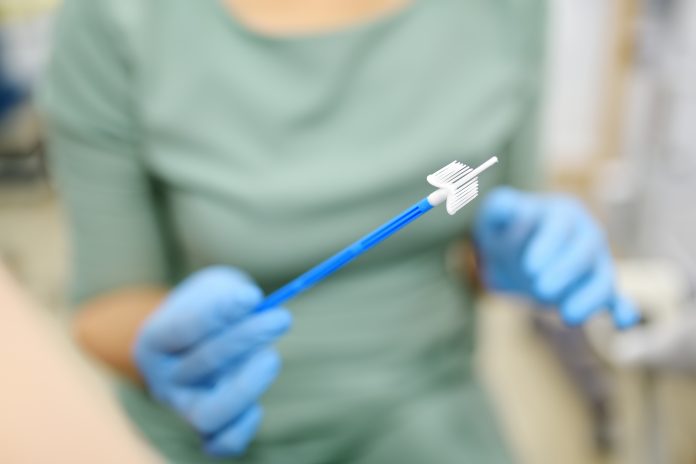As part of the 10 Year Health Plan, the UK Government has announced it will offer home-testing kits for cervical cancer screenings
Women across England who have not attended health checks in person will now be provided with home-testing kits as part of the cervical cancer screening programme, announced in the 10 Year Health Plan.
The initiative aims to reduce cervical cancer rates by tackling barriers that women often face during the screening process, such as fear of discomfort, embarrassment, cultural sensitivity, and the struggle to find time for medical appointments.
Cervical cancer screenings sit below the NHS target
Women who have rarely or never attended their cervical cancer screening will be offered a self-sample kit to complete at home. These will be sent out discreetly and returned via pre-paid mail in the local post box.
Participation in cervical cancer screening currently sits at just 68.8% – well below the NHS England target of 80%. This means over five million women in England are not up to date with their routine check-ups. However, experts believe that this targeted approach could increase participation in the screening programme, which saves approximately 5,000 lives a year across England.
The 10 Year Health Plan will outline the government’s plans to tackle challenges in the NHS.
Health and Social Care Secretary Wes Streeting said: “These self-sampling kits represent healthcare that works around people’s lives, not the other way around. They put women firmly in control of their health, ensuring we catch more cancers at their earliest, most treatable stages.
Our 10 Year Health Plan will fundamentally reform the NHS, shifting focus from treating illness to preventing it before it starts.
We know the earlier cancer is diagnosed, the better the chances are of survival. By making screening more convenient, we’re tackling the barriers that keep millions of women from potentially life-saving tests.”
Allowing women to test in the privacy of their homes
The testing kits detect human papillomavirus (HPV), which eventually leads to cervical cancer. The ability to test at home allows women privacy and convenience.
Michelle Kane, NHS Director of Screening, said: “There are a number of reasons that stop some women from taking up the offer of Screening, and we hope the introduction of self-testing will encourage more women to take up this life-saving test in a way that works for them.
I’d encourage anyone who gets an invite for a cervical screening, either from their local GP practice or the NHS App, to attend and if you have any worrying symptoms, please contact your GP. It could save your life.”
Women who test positive for HPV through self-sampling will be invited to attend a clinician check-up to test for cervical cell changes specifically. This two-step process ensures that any potential issues are identified and addressed, providing women with the confidence that the screening is thorough and reliable.
Athena Lamnisos, Chief Executive of Eve Appeal, said: “There are so many different reasons why those who are eligible aren’t responding to their cervical screening invitation letter.
HPV self-testing will be a step change for some. Being able to do the test in their own time and following simple instructions is what many people want and need. Ensuring that the under-screened and never-screened populations are aware of this new test is vital for Eve.
As the leading gynae cancer prevention charity, we know how vital it is to address health inequalities and make sure that everyone knows that this test is available to them and why it’s important.”
Michelle Mitchell, Chief Executive of Cancer Research UK, said: “Screening is a powerful tool to prevent cervical cancer and save lives, but we know it isn’t always easy for everyone to take part. For some, the test may seem uncomfortable, embarrassing, or simply hard to fit into their lives. That’s why we welcome the UK government’s decision to roll out cervical cancer home screening kits in England – to help remove barriers and make cervical Screening more accessible.
The gold standard way to test for HPV is still a sample taken by a clinician, and this will be suitable for most people. But beating cervical cancer means beating it for everyone, and this move helps to bring us closer to that goal. It’s important to remember that cervical Screening is for people without symptoms so, if you notice any unusual changes for you, do not wait for a screening invitation – speak to your doctor.”
Dr Anita Lim, Chief Investigator of the YouScreen trial and Visiting Senior Research Fellow at King’s College London: “This is a significant step forward for cervical cancer prevention and brings us closer to the NHS goal of eliminating the disease by 2040. The YouScreen trial, which provided self-sampling HPV kits to under-screen women in London, demonstrated that self-sampling could reach people who find it difficult to attend traditional Screening – including those from diverse and underserved populations.
It’s hugely positive to see this now reflected in national policy, helping more people get protected from this highly preventable cancer.”











